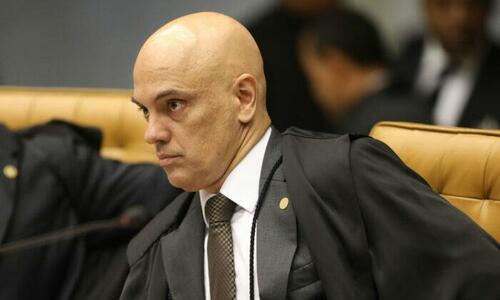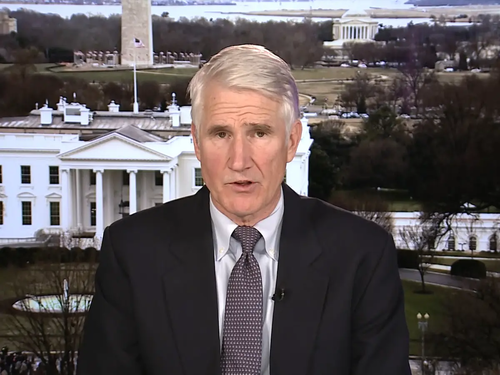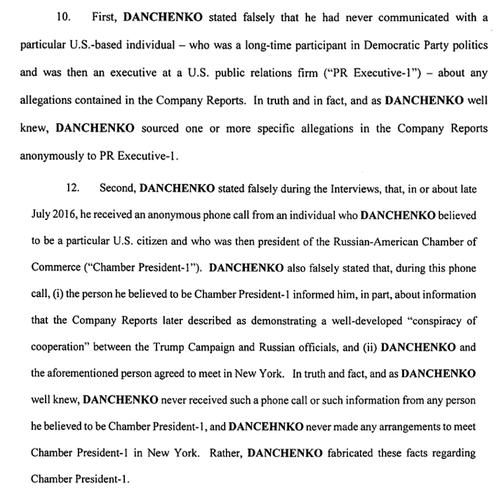Like the Dude, McCulloch v. Maryland abides. Steve Calabresi, Elise Kostiel, and Gary Lawson have a new paper called “What McCulloch v. Maryland Got Wrong: The Original Meaning of ‘Necessary’ Is Not ‘Useful,’ ‘Convenient,’ or ‘Rational.'” Anyone interested in McCulloch should read their article, but I want to keep the conversation going about whether “necessary and proper” is a hendiadys. That’s a claim I advanced in “Necessary AND Proper” and “Cruel AND Unusual”: Hendiadys in the Constitution. A hendiadys occurs when two words, separated by a conjunction, are used as a single unit of meaning (with each contributing something distinctive–not mere repetition).
In text, the authors suggest that my argument is opposed to Chief Justice Marshall’s, because he treats each term as having “independent significance,” while if the phrase is a hendiadys that would not be true. (I’m not sure Chief Justice Marshall actually argues that, but let’s leave that aside for now.) The authors then drop this footnote:
An assessment of Professor Bray’s argument is beyond the scope of this article. But because the argument, if correct, calls into question the lifetime project of one of us to ascertain the original meaning of “proper,” see Lawson & Seidman, supra note 36, Lawson, supra note 9; Lawson & Granger, supra note 23, and because a number of modern Supreme Court decisions have attached distinct significance to the word “proper,” see National Federation of Independent Business v. Sebelius, 567 U.S. 519, 559 (2012); Printz v. United States, 521 U.S. 898, 923-24 (1997); a few comments are appropriate. First, most of the many examples of hendiadys that Professor Bray provides, see Bray, supra note 139, at 696-706, are drawn from literature or colloquial speech. Legal documents in general and the Constitution in particular are neither of those things. See John O. McGinnis & Michael B. Rappaport, The Constitution and the Language of the Law, 59 WM. & MARY L. REV. 1321 (2018), Just as one would be more likely to look for metaphors in a poem than in a power of attorney (and probably more likely to look for technical words of art in the latter than in the former), perhaps it makes more sense to look for a hendiadys in a play or lunchtime conversation than in a formal legal document. Second, intratextually, the terms “necessary” and “proper” show up in other constitutional clauses, sometimes singly and sometimes in combination with other terms (e.g., “absolutely necessary”), which seems to cut in favor of assigning meaning to each. Third, and finally, even if Professor Bray is ultimately right, the hendiadys label only has bite if the unitary meaning of “necessary and proper” refers only to causal means-ends connection. That is surely not right. Once one identifies the Necessary and Proper Clause as an incidental powers clause, then the central question becomes which interpretative principles flow from that identification. If there was an established set of background rules for interpreting incidental powers clauses in agency instruments in the eighteenth century (and there was), and if the phrase “necessary and proper” was a commonly-used phrase in agency law at that time (and it was), and if all of the above would have been well known to the four agency lawyers and the agency-employing businessman on the Committee of Detail that drafted the clause (and it would have been), then it probably does not matter whether one parses “necessary” and “proper” in sequence to yield those interpretative principles or if one simply takes the phrase as a hendiadys that represents those principles. The principles are the principles. And if those principles went beyond a straightforward means-ends relationship and instead incorporate agency-law ideas such as a fiduciary duty of care, a duty of loyalty and a requirement not to exceed the scope of the granted agency (and they did), then little of consequence turns on whether one classifies the clause as a hendiadys or treats “necessary” and “proper” as distinct component parts of a set of fiduciary principles. In other words, perhaps we are dealing not so much with a hendiadys, in the literary sense of that term, as with a legal term of art.
There are three different arguments here, and I’ll give the briefest of responses with pointers for anyone who wants to read more.
The first argument is that we shouldn’t expect a figure of speech like hendiadys to appear in a legal document. I agree that a play, to give a form of expression the authors mention, is more likely to have a hendiadys (at least if Shakespeare is writing it). But all kinds of formal texts use this figure of speech (and others), not as a way to show off, but as a way to communicate. I give other examples of hendiadys in legal texts, ancient and modern, at pages 700-701 of Hendiadys in the Constitution. Among the examples in U.S. law are “open and notorious,” “arbitrary and capricious,” and “cruel and unusual.”
The second argument is that “necessary” and “proper” show up in other places in the Constitution separately. But I don’t see why this would negate an argument they are used in one place as a hendiadys. Every word in a hendiadys is used independently somewhere.
The third argument is that the hendiadic reading of “necessary and proper” matters only if the phrase is about causality (means-end connection) and not about incidental powers. This is an odd response, since I expressly argue that the phrase is about incidental powers. I never argue it is only about causation, and I’m not sure why my argument would not matter if it is about incidental powers. But note that the authors equate the idea that the Necessary and Proper Clause authorizes incidental powers with the idea that it imparts a fiduciary duty of care. I do not agree with that equation, and for readers who want to read at length why the U.S. Constitution does not establish legally enforceable fiduciary duties for government actors, you can see Against Fiduciary Constitutionalism (with Paul Miller).
I’m sure this short post will not be the last word on McCulloch and hendiadys, but my aim is to highlight the authors’ response to the hendiadic reading and encourage readers of the Volokh Conspiracy to dig into these questions.
The post Is "Necessary and Proper" a Hendiadys? Responding to Calabresi, Kostial, and Lawson appeared first on Reason.com.
from Latest https://ift.tt/gWE9cdk
via IFTTT








